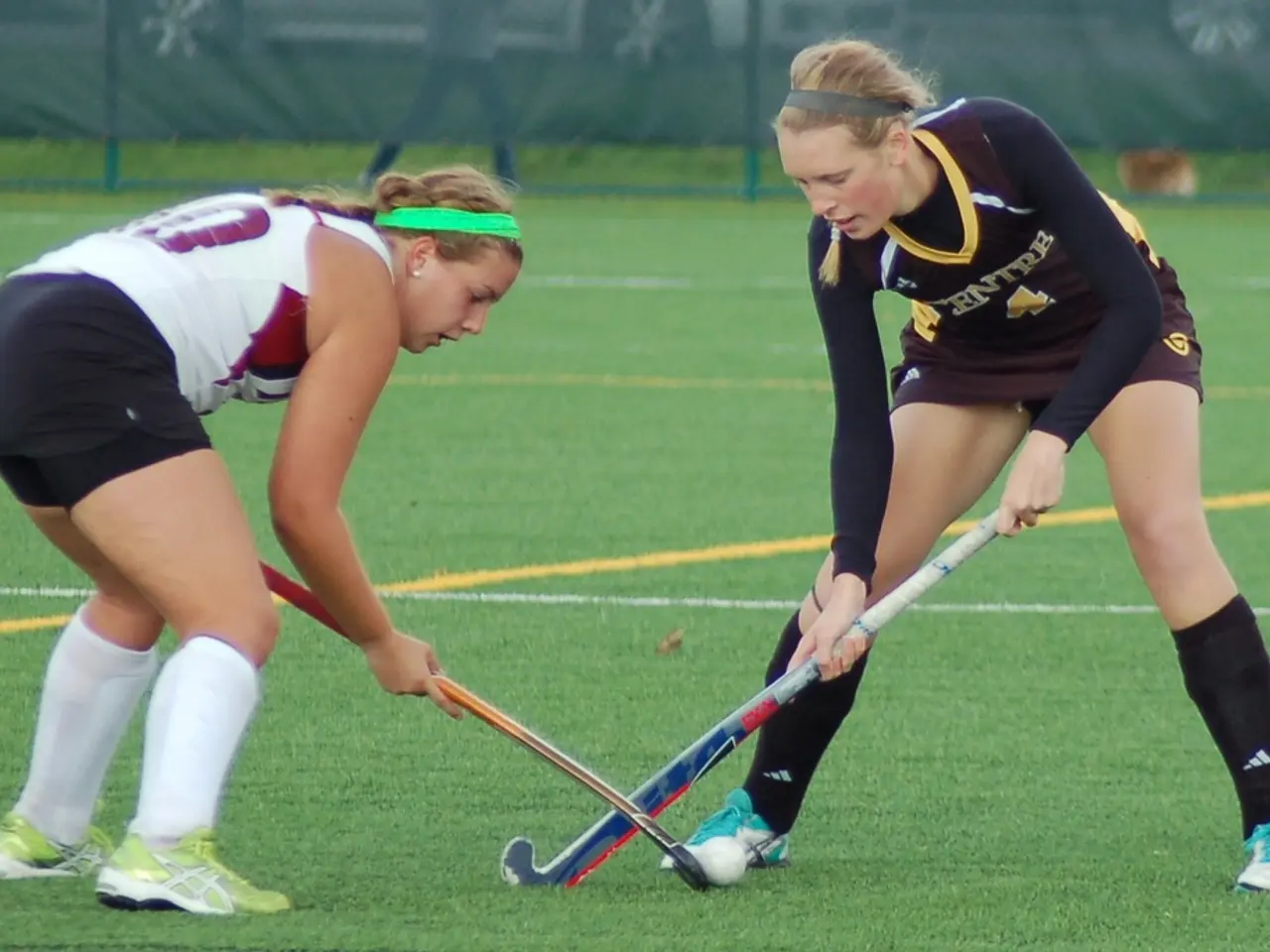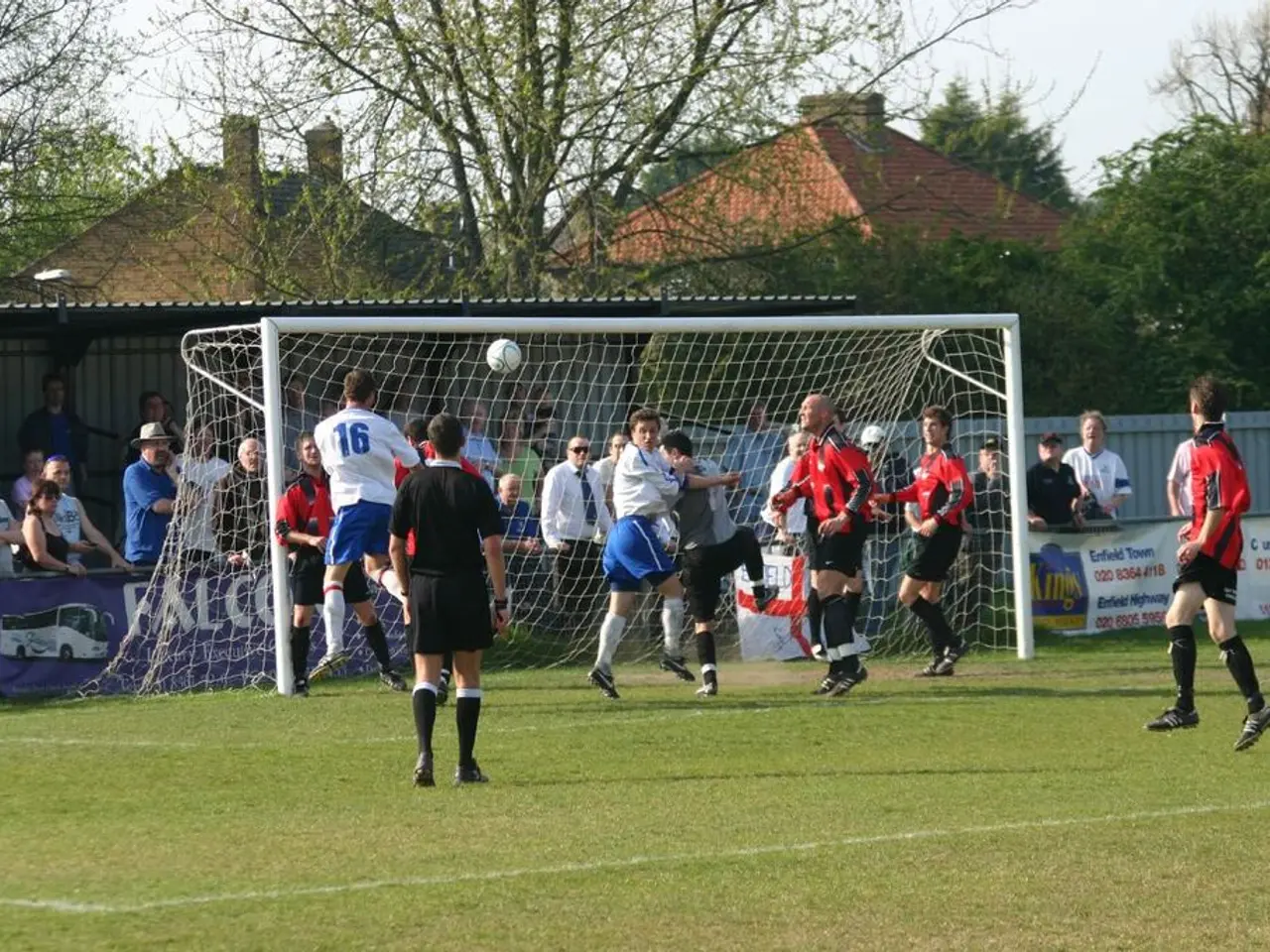Should the BBC alter its sports coverage, is it fitting to eliminate the prestigious 'Crown Jewels' of sports broadcasting?
The World Games 2025, set to take place in Chengdu, China, will feature a giant panda as its mascot. This global event, with 4,000 athletes participating in 34 sports, includes GB entries in 15 sports. The World Games comes after the conclusion of the 2025 World Aquatics Championships, which took place in Singapore last weekend.
In the aquatics championships, China topped the medal table, with Australia in second place and the United States in third. Great Britain sent a squad of 67 athletes to Singapore and finished 15th in the overall table with five medals across artistic swimming, diving, and swimming races.
However, the BBC's coverage of the event was limited. The corporation did not provide TV coverage or many items on its website and app for the championships. This lack of coverage was a stark contrast to Aquatics GB, which secured the rights to broadcast the event and provided live coverage and magazine packages on its own website and via the Eurovision platform.
The BBC's approach to sports broadcasting has been a topic of discussion, with calls for increased coverage of sports considered nationally important and struggling for exposure. The corporation's arguments for reducing sports broadcast revolve around the cost-to-eyeballs ratio and its ability to turn money spent on dramas and documentaries into income from lucrative worldwide syndication deals, which is not an option with sport.
To increase visibility for lesser-followed sports like aquatics, the BBC’s sports coverage could be changed by incorporating regular live televised events, highlights, and digital content specifically dedicated to these sports, alongside enhanced promotion and multi-platform accessibility.
Scheduling live broadcasts and highlights on linear TV and digital platforms can raise visibility, as seen in BBC’s expanded coverage of women's rugby and boxing returning to primetime slots. Providing features, behind-the-scenes content, athlete profiles, and expert analysis on aquatics through BBC Sport’s website, social media, and radio can engage audiences and build interest.
Utilizing radio and audio platforms is another effective method. Since the BBC offers radio commentaries and digital audio streams for various sports, expanding this to regular, dedicated aquatics sessions could reach listeners who currently find little coverage available.
Integrating multi-platform promotion and audience targeting is crucial. Employing coordinated campaigns on BBC Sounds, social channels, and digital apps helps connect with younger and more diverse audiences who may have an interest in niche sports.
Revisiting rights and broadcast deals selectively is also a key approach. The BBC's strategy with The Open and women's rugby shows a model for securing broadcasting rights for less dominant sports to ensure coverage. Negotiating deals to broadcast significant aquatics events could facilitate greater exposure.
The National Lottery could be used to contribute to the costs of broadcasting less popular sports. Politicians may need to consider protecting lower profile competitions to ensure they are highly visible and have societal value. Commercial media prioritizes sports with high click-through rates, leading to a lack of coverage for secondary and tertiary sports.
The BBC is urged to provide coverage for these sports, with iPlayer as a minimum requirement. Ed Warner, chair of GB Wheelchair Rugby, has been vocal about this issue, writing his sports column at sportinc.substack.com.
Looking ahead, the BBC has not signed up to show the 2026 Commonwealth Games in Glasgow, where swimming will feature prominently. The World Games 2025, with its unique blend of sports including drone racing, wushu, fistball, life saving, and tug-of-war, presents an opportunity for the BBC to demonstrate its commitment to broadcasting a diverse range of sports. A strategic investment in broadcasting rights, live event coverage, tailored multi-platform content, and audience engagement initiatives focused on aquatics will help the BBC deliver greater visibility for this and similar lesser-followed sports.
- Despite the BBC's limited coverage of the World Aquatics Championships, they have the opportunity to demonstrate their commitment to broadcasting a diverse range of sports by investing in the broadcast rights, live event coverage, and tailored multi-platform content for The World Games 2025, which includes sports like aquatics, drone racing, wushu, and others.
- To increase the visibility of lesser-followed sports like aquatics, the BBC could consider incorporating regular live televised events, highlights, and digital content dedicated to these sports, as well as utilizing radio and audio platforms, and coordinated campaigns on various platforms to connect with younger and more diverse audiences.




